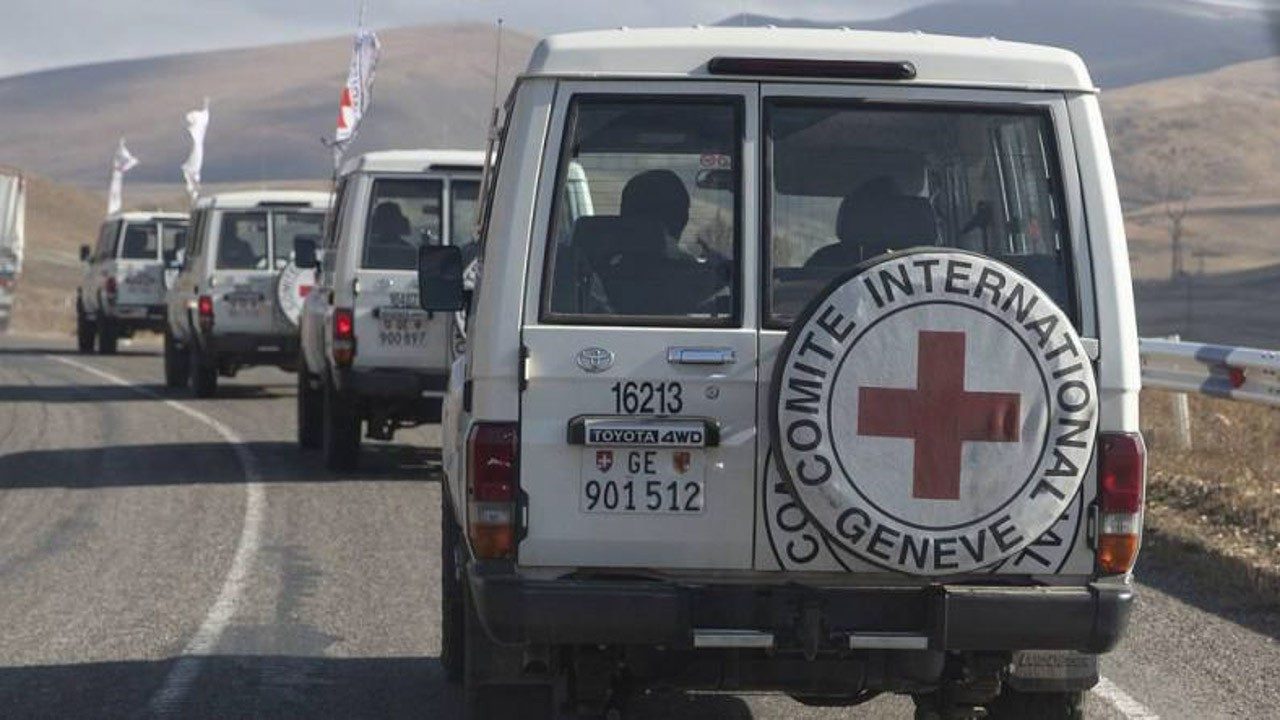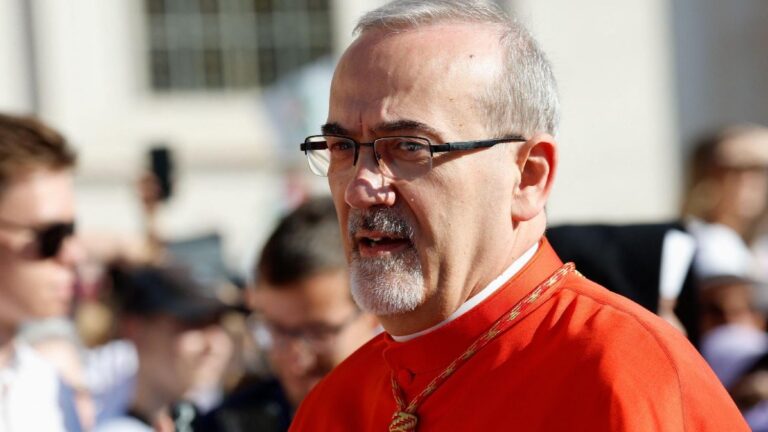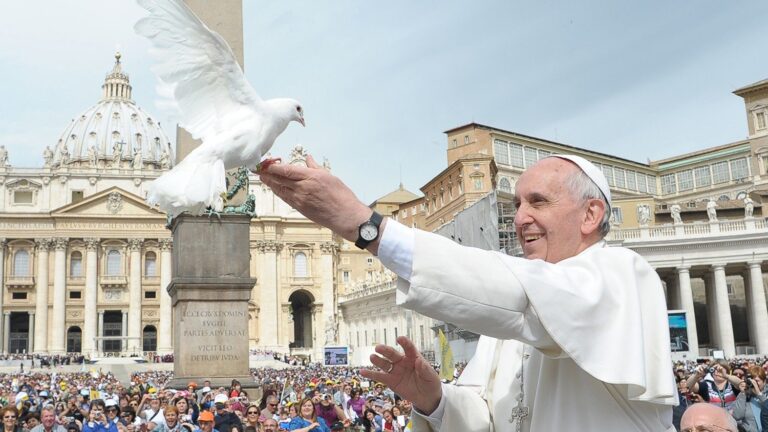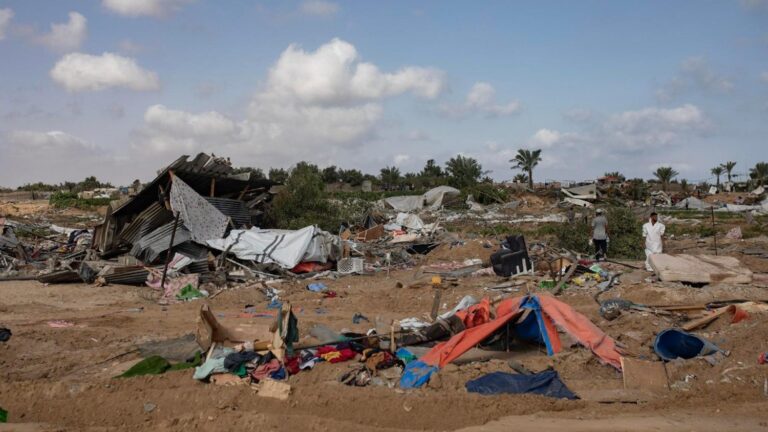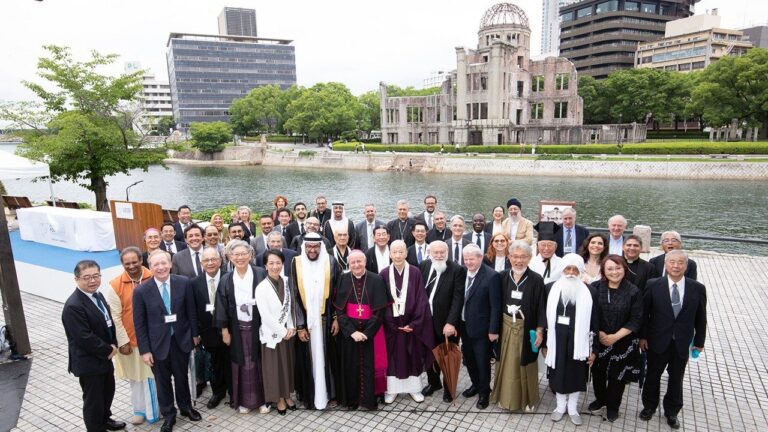Holy See: ‘Attacks against civilians in conflicts are unacceptable’
Archbishop Ettore Balestrero, Vatican permanent observer to the United Nations and other international organizations in Geneva, addresses the 34th International Conference of the Red Cross and Red Crescent and stresses the moral obligation of all parties armed conflicts to respect international humanitarian law protecting civilians.
By Lisa Zengarini
The Holy See has once again strongly denounced the systematic violation of international humanitarian law (IHL) in the context of ongoing conflicts around the world, notably in the Middle East and Ukraine, reiterating that indiscriminately striking civilians is morally “unacceptable”.
Massacred civilians can never be considered “collateral damage”
Address the 34th International Conference of the Red Cross and Red Crescent underway in Geneva, Switzerland, the Vatican’s permanent observer archbishop, Ettore Balestrero, denounced the fact that the civilian population continues to be victims in armed conflicts of indiscriminate attacks in violation of international law. “Massacred civilians can never be considered ‘collateral damage,’” he said.
Use of explosive weapons in densely populated areas
Archbishop Balestrero also reiterated the deep concern of the Holy See regarding the use of explosive weapons in densely populated areas, causing displacement and considerable damage to cities, schools, hospitals, places of worship and vital infrastructure for the civilian population.
He recalled that respect for international humanitarian law is “not only possible but also obligatory,” reaffirming, in the words of Pope Francis, that even amid the devastation of war, every person is sacred.
Raise public awareness of international humanitarian law
Faced with the current global context, Archbishop Balestrero stressed the urgent need for an educational process aimed at disseminating international humanitarian law and its ethical foundations and promised the support of the Catholic Church to “awaken public conscience” on these issues.
Need to stem the weaponization of AI in conflicts
This, he noted, is all the more important today in light of technological advances and the weaponization of artificial intelligence, which is rapidly becoming a central element in the conduct of hostilities.
In this regard, the nuncio said that the Holy See advocates for the responsible use of digital and cyber technologies, urging that they be reserved “for peaceful purposes, cooperation and mutual enrichment.”
The commitment of the Holy See
To contribute to this awareness-raising effort, Archbishop Balestrero declared that the Holy See is committed to making three commitments over the next four years: training Catholic military chaplains in international humanitarian law, promoting its ethical foundations, notably for the protection of civilians and religious sites, and cultivate interreligious dialogue in order to foster mutual respect, which contributes to the defense of human dignity and the promotion of the values that underpin IHL.
Recalling once again that “war is always a defeat of humanity”, Archbishop Balestrero concluded by renewing Pope Francis’ appeal that “it is not weapons, nor terrorism, nor war, but compassion, justice and dialogue which are the appropriate means to build peace.” .
Themes discussed at the Geneva Conference
The 34th International Conference of the Red Cross and Red Crescent takes place from October 28 to 31 and brings together representatives from 191 National Red Cross and Red Crescent Societies and 196 States Parties to the Geneva Convention. Under the theme Navigating Uncertainty – Strengthening Humanity, the Conference agenda particularly focuses on respect for international humanitarian law; strengthen the protection of civilians and humanitarians; the promotion of sustainable humanitarian action carried out at the local level; anticipation, preparation and adaptation to the climate challenge, importance of “disaster law”; the impact of digital technologies in warfare.
